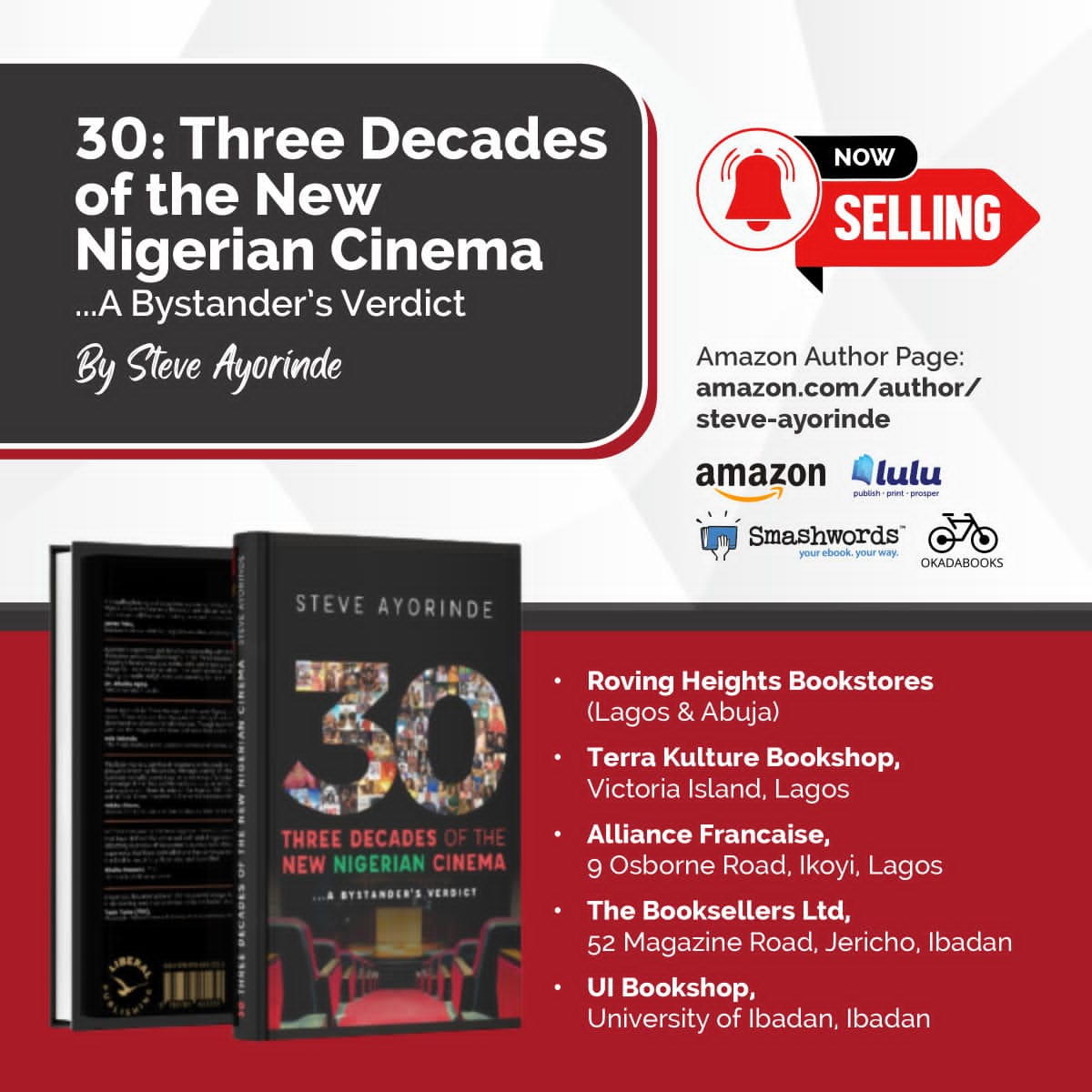As you’re no doubt aware, since the turn of the millennium, Lagos – Nigeria and West Africa’s largest city – has quickly established itself as a global cultural hub. That’s typically attributed to its thriving music and film industry, which the world has to thank for the gifts of Nollywood, Afrobeats, alté and more; one less widely acknowledged, though, is the city’s formidable style culture. Over the past 15 years, a key catalyst in this respect has been Omoyemi Akerele’s Lagos Fashion Week, a yearly event that distills the city’s inimitable vibe and flair for dressing, and serves as a proud platform for African fashion, broadcasting it to the world.
Its anniversary edition will unfold over the coming week, with over 60 designers on the schedule – with the likes of Adama Paris, Nkwo, Orange Culture, Iamisigo, and CuteSaint among them – with crowds in the thousands expected to attend. If the showcase’s history is anything to go by, this coming edition will pay testament to the fact that “we’re no longer just participating in global conversations; we’re shaping them,” Akerele asserts, her statement underscoring her resilience in building one of Africa’s most important fashion showcases.


While Lagos Fashion Week may now be flying steady, looking back to the very first edition in 2011, it wasn’t the easiest initiative to get off the ground. This city’s notorious traffic jams and rolling power cuts posed what many would consider insurmountable logistical challenges for an aspiring world-standard fashion showcase. Akerele – working under the banner of Style House Files, her business and creative agency – remained undeterred, though. Of course, that first edition wouldn’t have been what it was without the faith of then-emerging designers like Lisa Folawiyo (then presenting on the New York schedule) and Maki Oh, who rose to the occasion, delivering innovative, contemporary-spirited riffs on traditional Yoruba aesthetics. Few in attendance will forget seeing Folawiyo’s vivid Ankara dresses and Maki Oh’s textural, hand-dyed adire shirts.
“These weren’t just storytellers – they were culture shapers, and solution bringers,” Akerele says, highlighting their impact. That also made itself felt in the global attention their bold designs garnered. Lisa Folawiyo’s garments were spotted soon after on the hangers at Selfridges, while a printed chiffon blouse by Maki Oh’s was sported by none other than Michelle Obama. That makes for poetic reading in hindsight, but perhaps more importantly, it’s a testament to the showcases’s influence – not to mention its success in launching the careers of designers who’ve taken the world by storm while honouring their roots.

Indeed, a number of designers who’ve debuted at Lagos Fashion Week – Maxhosa, Kenneth Ize, Studio 189 – over the years have played key roles in redefining fashion culture, both at regionally beyond. For Iamisigo’s Bubu Ogisi, a day one alum, it “provided a crucial platform for dialogue, connecting us with key textile researchers, mentors, and the international fashion community.” Known in particular for their innovative raffia designs, as seen in their emblematic fringed coats, they were selected for a collaboration with Victoria’s Secret in 2023, and presented on the Copenhagen Fashion Week runway for spring/summer 2026 as the recipient of the Zalando Visionary Award. Another flagship name with roots in Lagos Fashion Week’s earliest is Orange Culture’s Adebayo Oke-Lawal. Now one of Nigeria’s most established – and internationally renowned – contemporary designers, his work has long expressed a gender-irreverent – or even fluid – approach to fashion; his spring/summer 2025 collection, which saw the agbada, a traditional tunic worn by Yoruba men, reimagined in sheer fabrics as a recent example.
“We started conversations around masculinity, gender, and vulnerability – things people didn’t want to discuss,” Oke-Lawal reflects, noting that even a decade ago, Nigeria’s fashion landscape was dominated by macho-man conservatism – think monochromatic suits, rigid tailoring, and deeply instilled taboo around perceived feminine dress expressions. Over the past decade and a half, Orange Culture – and the shows they’ve presented on the fashion week schedule – have profoundly reshaped Nigeria’s menswear style conversation, pioneering a movement that has introduced a then-rare fluidity to African fashion.


That’s made itself felt beyond the catwalk, with gender-fluid, maximalist silhouettes becoming a defining feature of Lagos Fashion Week street style. A highlight of the week – after all, the showcase wouldn’t be quite what it is without its outré attendees – over the years, a glance at the shows’ crowds has always offered a faithful temperature check of Lagosian style culture. In 2011, tailored ankara cloth dresses and towering gele headwraps reigned, but the looks seen across today’s thousands strong audiences paint a more eclectic picture. Indigo adire cloth garments are styled with raffia skirts. Vintage sweatshirts with skinny jeans and Gucci-monogrammed mules. Men in flowing caftans with plunging necklines, paired with babouche slippers or heels. Women in oversized, print-heavy blazers layered over sheer dresses or crop tops. All around, you’ll see globe-sweeping streetwear trends effortlessly styled with pieces made by local tailors, distilling Lagosians’ knack for dressing, tinged by subtle rebellion and maximalist extroversion.
Of course, while this edition of Lagos Fashion Week is, by nature, contemplative of its past, the event has long been anchored in a future-minded ethos, with sustainability placed firmly at the heart of its mission. This, Akerele argues, is in many senses a default: “Africa has always been inherently sustainable,” she says, noting the longstanding pan-continental tradition of reusing and upcycling fabrics. It’s with this in mind that she founded Green Access, an initiative “born to reconnect with that wisdom” by training designers to work with waste materials, like Kadiju’s upcycled adire prints and Omolabake Temetan’s shoelace weaves.


Though less hyped than European fashion weeks for its sustainability efforts, Lagos Fashion Week is gaining global acclaim as a finalist in the 2025 Earthshot Prize – part of Prince William’s £50 million initiative to champion eco-innovators. Chosen from 2,500 nominees in the “Build a Waste-Free World” category, the spotlight is duly earned on account of the platform’s commitment to addressing fashion’s waste crisis through artisan-focused programs. With the winners set to be revealed on November 5th at a ceremony in Rio de Janeiro, Lagos Fashion Week stands a chance of winning £1 million in potential funding, dramatically enhancing its mission to amplify an inherently African approach to sustainability in fashion worldwide.
Whether it takes the prize home or not, Lagos Fashion Week’s victories over the past decade and a half are irrefutable. There are few other showcases that can claim to have transformed Africa’s fashion landscape so significantly, platforming local talent and forging international connections to profound impact. And few are as genuinely pan-African, drawing designers from Ghana, South Africa, Senegal, Cote d’Ivoire and more. Looking ahead to the prospect of another 15 years steering the ship, Akerele notes her excitement “about depth, about seeing African fashion evolve beyond aesthetics into influence, innovation, and impact.” Of course, while fashion’s future in the long term is clouded, there’s cause to believe that Lagos – a city where endless traffic jams are counterposed by similarly endless creative drive – will be a place to look to with a keen gaze. In no small part is Lagos Fashion Week to thank for that.
Credit: Vogue







